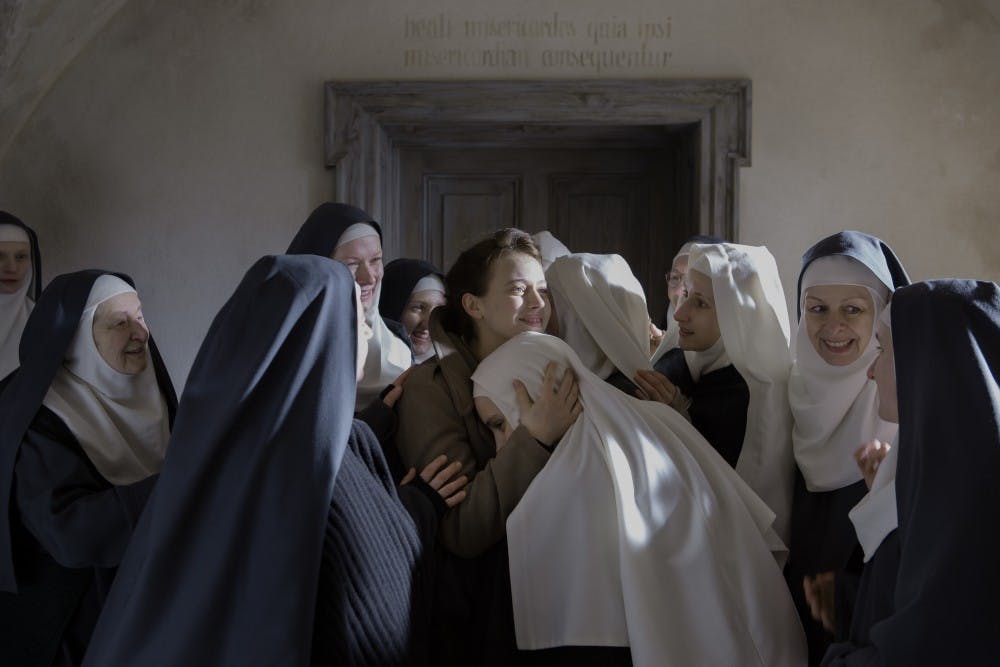Luxembourgish director Anne Fontaine's latest release Les Innocentes is a film of quiet and private grief, of feminist choice, of faith and guilt. Put simply, this story is about how French Red Cross doctor helps several pregnant nuns bend their faith when faced with the bitterness of war and life itself.
The movie's most striking moment comes silently in the cascading second half, a reward for the atmospheric beginning that has little in the way of action or emotion. After the young doctor Mathilde has just finished checking on the expectant sisters, she settles in with Nun Maria, the second in command, to help conceal a secret operation. Broaching discussions of personal relevance to hide their guilt and unease at the situation, Mathilde asks if Maria regrets her decision to enter the convent. Maria says she initially regrets leaving her fashionable clothes and many lovers, but reminds Mathilde that "faith is 24 hours of doubt and one minute of hope," and she is committed to her mission.
The first portion of the film works well, displaying characters in their day-to-day schedules for you to observe and grasp at their inner consciences, the sisters performing daily chores with swelling bellies and Mathilde monitoring them while skipping out on her duties toward the wounded French soldiers. The nuns are doing as they are told; Mathilde is skipping out on work to help them. Their repeated interactions eventually create a unique brand of dogma and feminism.
The sisters themselves are rape victims, impregnated by the Soviet army in 1945 as they rolled through Poland on their way to taking Germany. They scuttle in silence, hiding their baby bellies under vestments, afraid of being touched by doctors, declining to disrobe, and fearing the damnation that is out of their hands. Much of Les Innocentes grapples with Catholic guilt and the burden that young women feel as victims of rape in a patriarchal world.
The film could have easily made caricatures of the self-loathing sisters who feel guilty about their pregnancies and live in bodily denial and shame. But Les Innocentes operates with a fierce realism that avoids this easy put-down of religion. The sisters know that they are never supposed to have had children, but they also realize that they shouldn't have to see sin where they should find joy. It's about meeting in the middle of what they have been given and what they believe is up to Providence.
This messaging seems to tackle monolithic definitions of Catholicism, in which you accept all doctrines of the religion no matter your ability to do some and forego any personal concessions in the name of safety or comfort. For the atheist Mathilde, there's a lesson for her that there is human struggle present in the crumbling concrete walls of the covent, that there is self-reproach, doubt, and even Christian imperfection. The nuns need her help, and in foregoing their vows to accept her support, she catches a glimpse of the flexibility of their faith.
In all of Les Innocentes moral questionings, none seem clearer than the respect of each woman's choice, a quasi-feminism. One lady wants to marry the Russian soldier whose baby she's carrying because her protected her from further attacks. Another lady wants to keep her child, but leaves him because she wants to leave the convent and "live." The real joy of the film comes when the blue-eyed nuns looking comfortably damned realize that they should be excited to have their babies after all, in a rapidly unfolding climax that's almost heartwarming– if it weren't for the grave circumstances.







